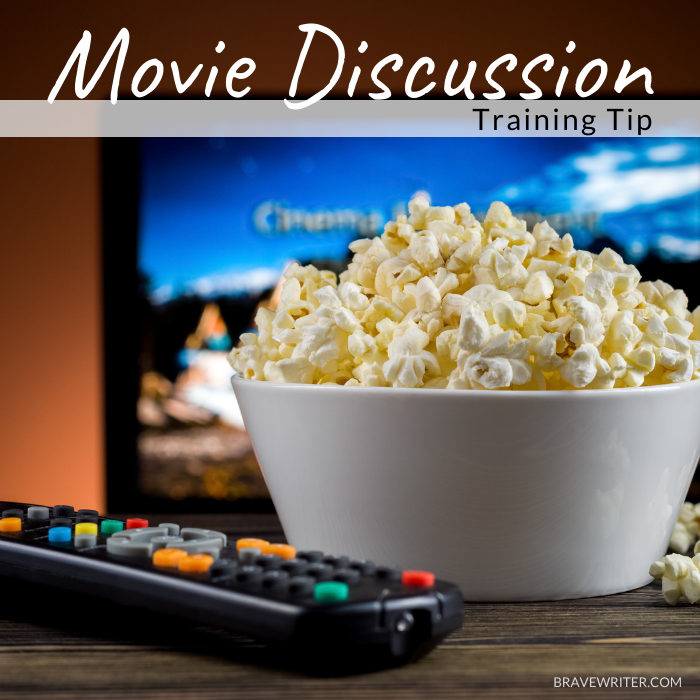

Movie Discussion Movie discussions ministryark header
Movies have the unique power to transport us to different worlds, evoke a spectrum of emotions, and spark thought-provoking conversations. They are not just a source of entertainment; they can serve as a catalyst for learning and discussion. In this post, I want to delve into the art of movie discussions—how to engage with others about the films we love and what we can learn from these conversations.
Engaging with Visuals

This image sets the stage for the importance of discussing movies. It’s not just about putting on a film and passively absorbing the content; it’s about diving deep into the narrative, the performances, and the underlying messages that each movie portrays. Engaging with visuals encourages us to look beyond the surface and analyze the cinematic choices that contribute to the storytelling process.
The Importance of Diverse Perspectives

When discussing films, it’s crucial to consider the perspectives of others. Everyone brings their own experiences to the discussion, which can lead to richer insights and understandings. Different backgrounds can shape how we interpret a story, character motivations, and thematic elements. Listening to others and sharing your viewpoints can create a dynamic conversation where each voice adds value.
Structuring the Discussion
To have meaningful conversations about a movie, it can be helpful to structure your discussion. Start with a brief summary of the film, focusing on plot points without giving away spoilers for those who haven’t seen it yet. Then, dive into the aspects that stood out to you—be it cinematography, a powerful performance, or a thought-provoking theme.
Character Analysis
One of the most enjoyable aspects of film discussions is exploring character development. Characters are often the heart of a movie, and analyzing their journeys can lead to incredible conversations. Did the protagonist evolve throughout the film? Were their motivations clear? How did the relationships between characters alter the narrative? Each person can weigh in on their favorite characters and share why they resonated with them.
Theme Exploration
Every film has themes that it seeks to convey, whether overtly or subtly. Discussing these themes can uncover deeper meanings. Does the movie address societal issues, such as love, loss, friendship, or morality? How does it reflect or challenge cultural norms? A rich discussion can emerge when participants reflect on the themes presented and relate them to their own lives or current events.
Technical Elements
While plot and characters are often the focus in discussions, technical elements like cinematography, editing, sound design, and score play a vital role in a film’s effectiveness. Discussing how these elements enhance or detract from the overall experience can lead to great insights. For instance, how did the cinematography change your perception of a scene? Did the score evoke the right emotions at pivotal moments? These technical qualities can provide a foundation for lively discussions.
Comparative Views
It can also be enlightening to compare films with similar themes, styles, or genres. How does one film approach a subject differently than another? What can we learn from observing the variations? Making comparisons opens up a broader conversation about filmmaking, narrative strategies, and viewer engagement.
Encouraging Critical Thinking
The goal of a movie discussion is not merely to express likes or dislikes, but to cultivate critical thinking. Why do we feel a certain way about a film? What artistic choices influenced those feelings? Challenging our assumptions and exploring the rationale behind our opinions leads to a deeper appreciation of cinema as an art form.
Creating a Comfortable Environment
For discussions to thrive, a comfortable and open environment is essential. Encourage all participants to share their thoughts freely and remind them that all opinions are valid. The goal is to learn from one another and enjoy the shared experience of cinema. Whether it’s in a formal setting like a book club or an informal gathering with friends, creating that space fosters enjoyable conversations.
Follow-Up Questions
Asking follow-up questions can keep the conversation going. Questions like “What did you think of the ending?” or “Which character did you relate to the most?” prompt deeper analysis and help clarify experiences and interpretations. The best discussions often occur when everyone feels inspired to dive a little deeper. Facilitating this could lead to an engaging cycle of thoughts and ideas.
Utilizing Resources
There are plenty of resources available for anyone looking to enhance their movie discussions. Websites, blogs, and podcasts abound with insights into various films. These can serve as guides to structure discussions or provide background information that can enrich the conversation. Engaging with these resources can also help identify films worth discussing, broadening the scope of potential topics.
Applying Lessons Beyond Cinema
One fascinating aspect of movie discussions is that the lessons learned don’t have to stay confined to cinema. They can be applicable in everyday life and can help us process our experiences and feelings. By discussing characters’ decisions or the moral dilemmas faced in films, we can reflect on our choices and values outside of cinematic narratives.
Final Thoughts
The beauty of movie discussions lies in their ability to foster connections, deepen our understanding of films, and inspire new perspectives. Whether you’re a casual viewer or a cinephile, opening up conversations about movies can enrich your appreciation for storytelling. Dive in, share your thoughts, and hear others. Every discussion offers a chance to explore the multi-faceted world of cinema.
This HTML content provides a comprehensive overview of how to engage in movie discussions, framed in a way that encourages interaction and personal insight while meeting the length requirement.







